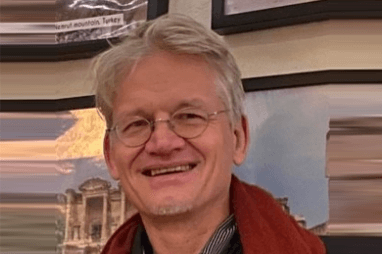A lecture as part of the mentoring visit – Prof. Wolbert Smidt (Friedrich Schiller University, Mekelle University)

23 11 2022
Category: Events, I.1.1/IV.1.1, Results
We would like to invite you to a lecture entitled “Discussing visuality in Ethiopian Orthodox churches. Art as an instrument of shaping discourses on war, conflict and communality”, prepared for a mentoring visit as part of Action I.1.1/IV.1.1 – Mentoring Programme.
The lecture will be delivered during the 1st International Conference “Art of communication and communication through art in Asia and Africa” co-organised by the Faculty of Oriental Studies at the University of Warsaw on 1-2.12.2022.
Professor Wolbert Smidt is an Ethiopian studies expert, ethnohistorian, and scholar specialising in political anthropology and history in relation to ethnic groups living in northern Ethiopia (Tigray), Eritrea and western Ethiopia. His work concerns the history of the origin and development of the modern states of Ethiopia and Eritrea. His areas of research interest also include the history of European-Ethiopian (and especially German-Ethiopian) contacts. He has been a visiting professor at many universities, in countries including Japan, Germany and Ethiopia. He is the author of hundreds of publications (bibliography available here) on the history and culture of the countries and communities of the Horn of Africa. He is a member of many scientific and cultural societies.
In his opening lecture, Professor Smidt will present issues related to the sacred art of the Ethiopian Orthodox Church, in the context of shaping discourse on war, conflict, and community in Ethiopia. Sacred art in Ethiopian churches, as in other regions of the world, is an excellent example of the conveyance of information about the social and political values of a given community. The lecture will present examples of Christian art, mainly from the Tigray region, from the northern part of Ethiopia, and also examples of the sacred art of followers of other religions from this area. The main issues discussed during the lecture will concern:
- Relationships between war and conflict with sacred art. Over the centuries, Ethiopian icons have been used to reinforce war narratives and accompany Ethiopian leaders and rulers in battles. Religious art was (and still is) a key element in the ongoing wars.
- Art as an element supporting and creating community. During the wars, churches were protected as places where cultural heritage objects could be stored (among others, icons and illuminated manuscripts, etc.), which are also treated as sacred and sanctified objects. Thanks to their divine presence, these objects helped create a spiritual sanctuary for the inhabitants of the surrounding towns. Churches became sacred spaces in which one could find shelter and temporarily (or permanently) leave the world behind.
- Currently, the museumisation of sacred art is taking place, which leads to the separation of art from its local dependencies and context. Objects that were a living part of the community are being moved to museums. In addition, art is used to create a specific image of Ethiopia as a country with a unique history and culture. Sacred art is also used for political purposes, as can be seen during the ongoing war in Tigray. Military attacks on churches and monasteries which are several hundred years old, and on their collections, can be interpreted as a particular form of political message addressed to local communities and Ethiopian society.
The lecture by Prof. Wolbert Smidt is part of a mentoring visit under Action I.1.1/IV.1.1 “Mentoring Programme”, belonging to the “Excellence Initiative – Research University” Programme. The visit is taking place at the invitation of the “Visions of African history” team (dr hab. Hanna Rubinkowska-Anioł, Prof. Prof. UW, dr hab. Kamil Kuraszkiewicz, Prof. UW, dr Zuzanna Augustyniak, Kinga Turkowska MA).
Information about the conference
We would like to invite employees and students of the University of Warsaw, and all interested parties!